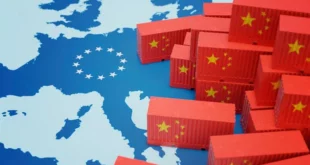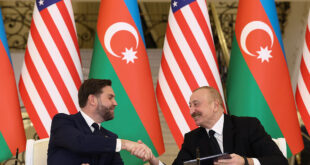 As Russia deployed additional troops to the Abkhazian conflict zone, Tbilisi has tossed around war rhetoric about Abkhazia. Georgia asserts that Russia has stationed dozens of armor and artillery systems in the territory of Abkhazia and posted 200 land troops in Ochamchire.These forces do not represent the peacekeeping contingent operating under the CIS mandate. Russia and the de facto authorities of Abkhazia responded with counter accusations that Georgia is stirring up tension and mobilizing additional forces near the conflict zone. Kosovo precedent- Presenting a challenge Officially, Tbilisi says that Georgia faces serious danger from Russian attempts to annex part of its territory.
As Russia deployed additional troops to the Abkhazian conflict zone, Tbilisi has tossed around war rhetoric about Abkhazia. Georgia asserts that Russia has stationed dozens of armor and artillery systems in the territory of Abkhazia and posted 200 land troops in Ochamchire.These forces do not represent the peacekeeping contingent operating under the CIS mandate. Russia and the de facto authorities of Abkhazia responded with counter accusations that Georgia is stirring up tension and mobilizing additional forces near the conflict zone. Kosovo precedent- Presenting a challenge Officially, Tbilisi says that Georgia faces serious danger from Russian attempts to annex part of its territory.
According to President Mikheil Saakashvili, Georgian authorities have evidence that Russia tried to provoke the recent uprising in Tbilisi and use that time to deploy its troops in Abkhazia. “Moscow officials know that if they separate Abkhazia from Georgia, Georgia will not manage to exist as an independent state, but we’ll respond properly to all such attacks and protect our country,” stated Mikheil Saakasvhili. However, there are other problems troubling Tbilisi. Soon the UN will discuss the issue of Kosovo’s independence.
The Georgian government fears that if the West recognizes Kosovo’s independence without Russia’s approval the latter may recognize Abkhazia’s independence. Archil Gegeshidze, expert at the Foundation of Strategic Studies and International Relations states, “If Kosovo’s independence is recognized, Russia will certainly try to use this trend regarding Georgia. However it is impossible to apply Kosovo precedent in Georgia due to historic, political and other factors.”
According to Gegeshidze, Abkhazia’s de facto authorities will never resign and delegate power to the UN. Russia will not allow it. “Due to these factors, the process which was culminated by Kosovo independence may not be compared to Georgia. Leave alone the fact that Albanians were subject to ethnic cleansing in Kosovo, while the violence in Abkhazia came from Abkhazs and Georgians were the victims of the ethnic cleansing. There are many other differences in these processes but Russia claims that if Kosovo’s independence is recognized, the same may happen in Abkhazia,” Gegeshidze explained.
‘We’ll accept the challenge’ Mikheil Saakashvili has responded to the statement made by his Russian colleague, Vladimer Putin that if Kosovo gains its independence Abkhazia may also. “We’d like to tell Russians and others: you cannot divide Georgia. Moreover Georgian state, law enforcement and security services are mobilized to protect Abkhazia and Tskhinvali,” President Saakashvili declared. Givi Targamadze, chair of the parliamentary committee for defense and security, states that recognition of Abkhazia’s independence by Russia will be tantamount to waging war against Georgia. Georgia will accept this challenge.
Nino Burjanadze, Parliament speaker says that the government is willing to solve the conflict through peaceful, political methods. However, she added, “The majority of Georgian people except traitors will defend the unity of Georgia if anyone tries to divide Georgia and recognize Abkhazia’s independence.” Is Georgia Ready for War? The statements by Georgian top officials raise the question whether we will face further aggravation in the Georgia-Abkhazian conflict zone or resumption of armed confrontation. If the threat is real, is the Georgian army ready to fulfill the task and what will the reaction of international community be?
 Will the escalation in Abkhazia spill over in Tskhinvali region? “Russia wants to declare: Let Abkhazians and Georgians talk but there should not be any results until a consensus is reached. In this case the talks will not concern maintenance of Georgia’s territorial integrity. Georgia and Abkhazia will have equal sides during the negotiations similar to the situation of Kosovo and Serbia. The main goal will be consensus rather than the territorial integrity of the country,” says Gegeshidze. Tornike Sharashenidze, an expert in international relations, coordinator of GIPA international policy programs and former director of NATO information center says that we should not expect any military conflict in the conflict zone.
This will not happen even if Kosovo’s independence is recognized. “Escalation in Abkhazia is not favorable for Russia, Georgia and international community. Hence we should not expect such deterioration,” he says. Akia Barbakadze, an independent expert in military issues says, “I doubt that any military operation is considered a serious state program. However, I don’t exclude that the worst scenarios have been developed in the general headquarters. Georgia has two frozen conflicts and they may resolve anytime. As for the armed forces, they must be ready for the worst plots. A military operation was planned long ago in the conflict zone and this plan exists in the general headquarter.
The general headquarters’ function concerns development of such plans not only regarding Tskhinvali, Java or Sokhumi. The matter concerns all possible threats- border violation or attack of would-be enemy. It is necessary to elaborate such plans.” Giorgi Bliadze, independent military expert believes, “The military headquarters of any normal country develop such plans notwithstanding the reality of the threat of armed conflict.” But is it reasonable to hold military operation in conflict zones? Will the operation provide political resolution and ensure peaceful co-existence for the Georgian, Abkhazian and Ossetian populations?
According to Giorgi Bliadze, “If any military operation is planned in the conflict zone it should be short-term and so rapid that Russia must not have time to react. At the same time the plan should be developed at the level of political and international relations.” “It is necessary to hold so called blitzkrieg in a contemporary political environment to assure international community that the problem must be solved in a military way. Certainly, an information war and the issues of political resolution should precede the military campaign. The state machine has not yet developed such preconditions,” Giorgi Bliadze explains. Irakli Sesiashvili, an expert in military security issues, and Director of Justice and Freedom declares that, “Holding a military operation is easy.
It is more difficult to calculate the outcome. It must define what happens after the special operation, what force will oppose the new authorities and how will the peace be maintained. This process is more difficult and it requires more human and financial resources than the operation itself. If Tbilisi holds the special operation in a conflict zone, Russia will certainly try to aggravate the situation in other regions.” “The reopening of conflict favors Russia’s interests. We can predict that the separatist military units will be equipped with the Russian arms. However, the conflict will have the character of ethnic confrontation and it will require Russia’s presence in the region. Russia will also try to beef up peacekeepers’ contingent as well as the action field.”
Barbakadze predicts. According to Barbakadze, there is another threat: the separatists will try to engage peaceful civilians from both sides in the conflict. This conflict will claim human lives and will compromise the state’s stability and infrastructure. State control may be temporarily lost in certain territories. How will Georgia’s allies react if the conflict resumes? Barbakadze reckons that the USA will not support a war, as the crisis will proliferate throughout the Caucasus region. Unrest in the region does not favor the US national interests. Assumingly Turkey will refrain from support for the same reason.
The EU will oppose the resumption of any crisis considering the new neighborhood initiative. Additionally, the crisis in Abkhazia will escalate tension in Samachablo and certain military resources will be required in the east. In the case of failure, the process will turn into an internal political crisis. According to Barbakadze it is impossible to solve the conflict by peaceful means considering all the factors involved. Even in the case of a military advantage, the operation will be held in an unfavorable situation and there will be a minimal chance of achieving any positive results.
Sesiashvili says, “De facto authorities of Abkhazia have announced that they will not rest until they regain Kodori gorge. Russian specialists provide Abkhazians with military training and instructions. The intelligence service also functions regarding Kodori. All this means that certain preparations are under way and a large amount of money is being invested in the process. They are waiting for further political tension in the country to use that moment in their favor. However, nowadays, their human resources are poor. The final decision is still up to the Kremlin. An unstable Georgia favors Russia’s interests as this will hamper the process of Georgia’s integration into Euro-Atlantic structures and damage the country’s image.”
Source: The Georgian Times
 Eurasia Press & News
Eurasia Press & News



